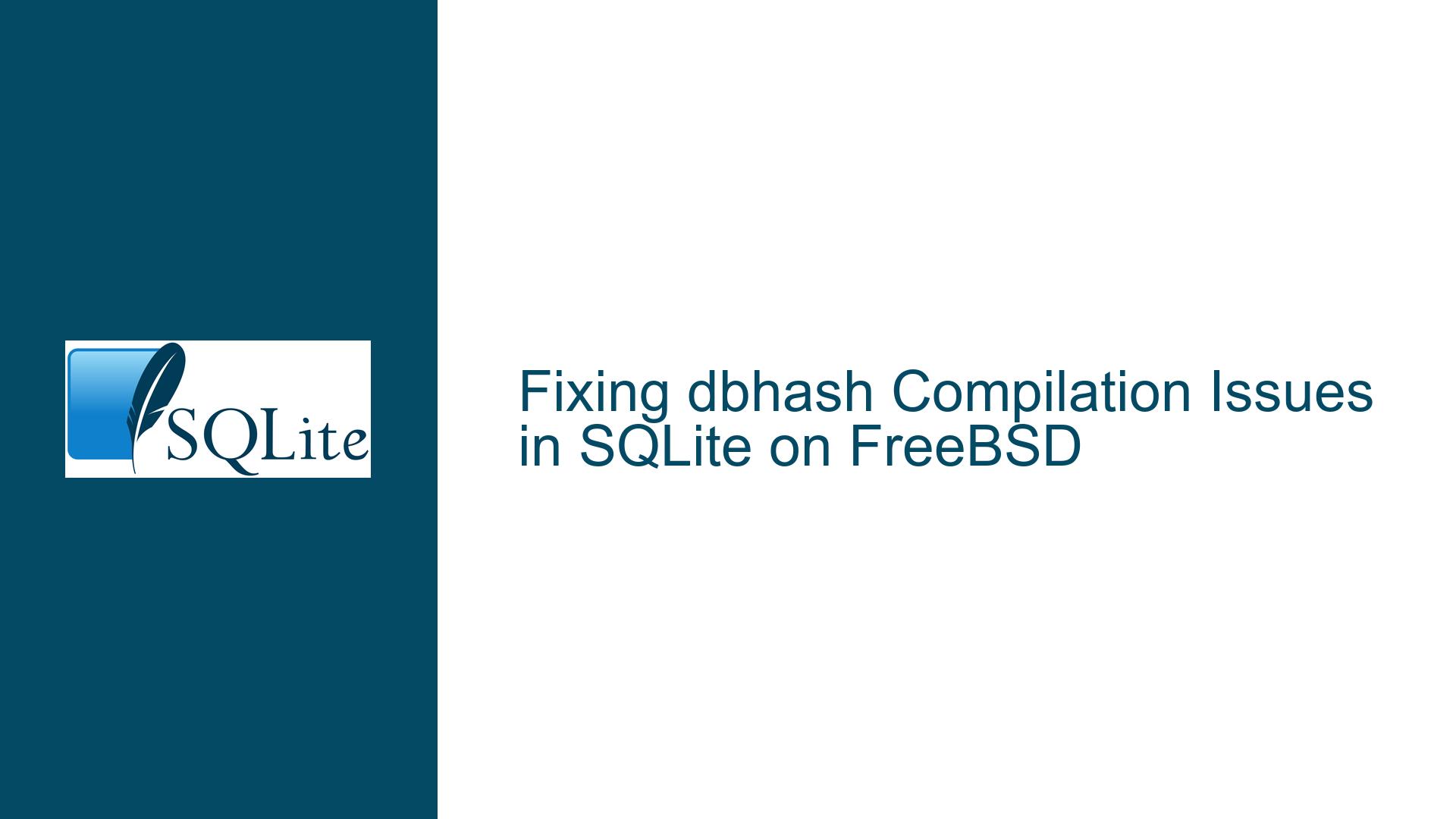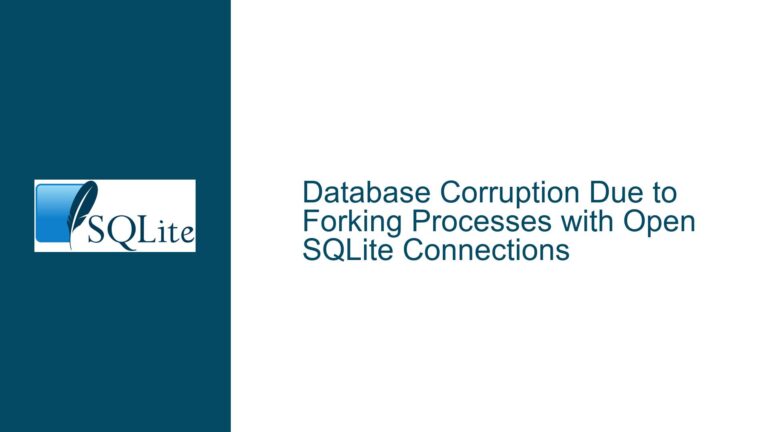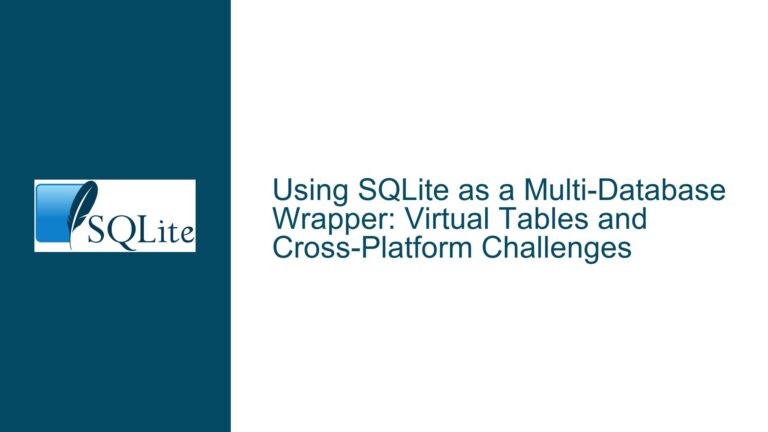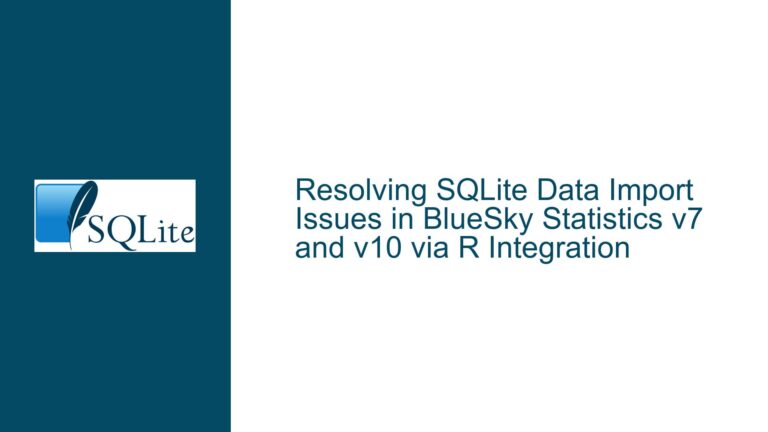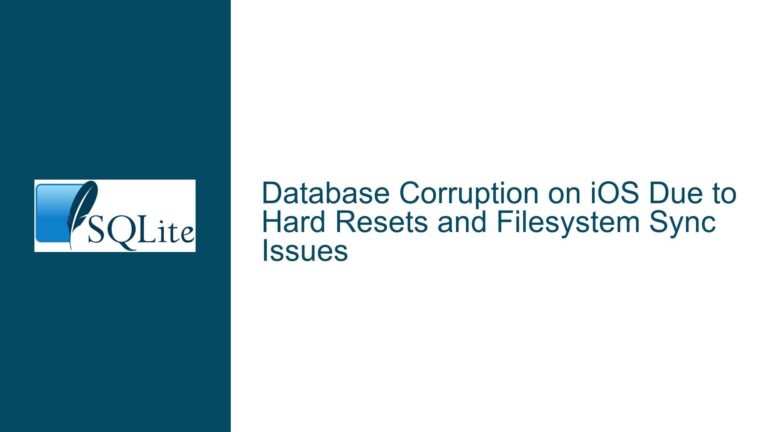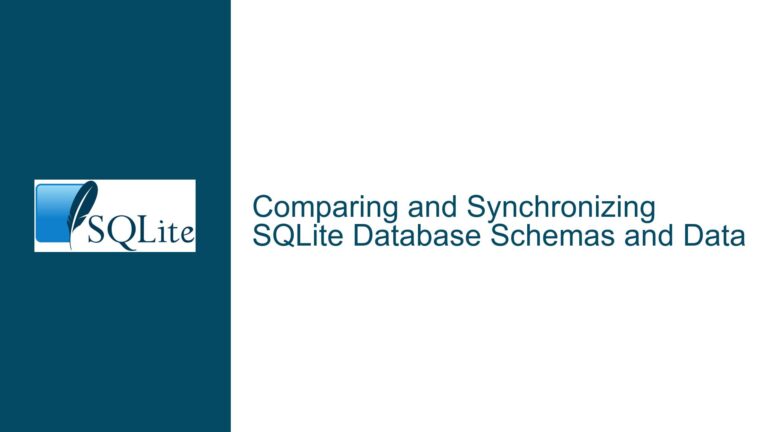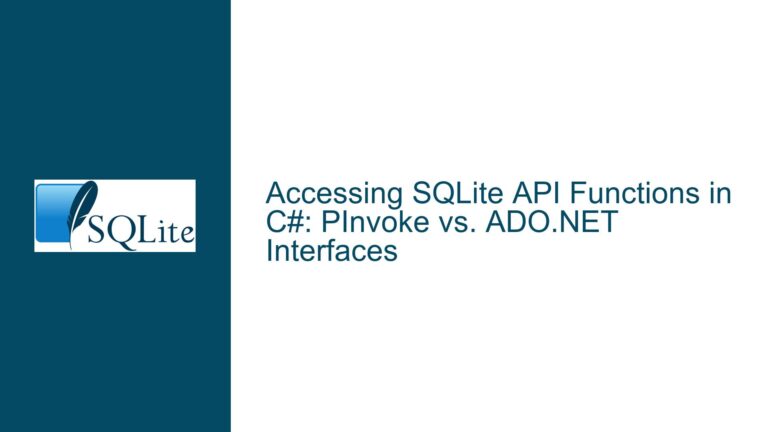Fixing dbhash Compilation Issues in SQLite on FreeBSD
Understanding the dbhash Compilation Process and Its Dependencies
The core issue revolves around the inability to compile the dbhash utility from the SQLite source code on a FreeBSD system. The user followed the standard procedure of downloading the sqlite-autoconf-3470000.tar.gz package, running the ./configure script successfully, and then attempting to build dbhash using the make command. However, the build process failed with the error message: make: don't know how to make dbhash. Stop. This indicates that the dbhash target is either missing or not recognized in the provided Makefile.
The dbhash utility is a specialized tool provided by SQLite to compute the hash of the entire content of a database file. It is particularly useful for verifying database integrity or comparing databases. However, it is not included in the pre-packaged autoconf builds of SQLite. Instead, it must be compiled from the canonical source code, which is hosted in the SQLite source repository. This distinction is critical because the autoconf packages are pre-configured for general use and do not include all the tools available in the full source repository.
The user’s confusion stems from the documentation, which mentions the need to use the canonical source code but does not explicitly state that the autoconf packages lack the dbhash utility. This oversight can lead to frustration, especially for users who are not familiar with the differences between the canonical source code and the pre-packaged autoconf builds.
Why dbhash is Missing in Autoconf Builds and How to Identify the Correct Source
The absence of dbhash in the autoconf builds is intentional. The autoconf packages are designed to provide a streamlined build process for the core SQLite library and its primary components, such as the sqlite3 command-line shell. These packages are optimized for ease of use and portability across different platforms, but they exclude certain tools like dbhash to reduce complexity and size.
The canonical source code, on the other hand, includes the full suite of SQLite tools and utilities. This source code is maintained in a Fossil repository, which is a distributed version control system specifically designed for SQLite. To access the canonical source code, users must clone the repository using Fossil. This process is distinct from downloading the pre-packaged autoconf tarballs.
The key difference lies in the build system. The canonical source code uses a custom build system that is more flexible and capable of building all SQLite tools, including dbhash. The autoconf packages, by contrast, rely on the GNU Autotools framework, which is less suited for building specialized utilities like dbhash.
To resolve the issue, the user must obtain the canonical source code by cloning the SQLite Fossil repository. This involves installing Fossil on their FreeBSD system, initializing a local repository, and syncing with the official SQLite repository. Once the canonical source code is available, the user can proceed with building dbhash using the appropriate commands.
Step-by-Step Guide to Compiling dbhash from Canonical SQLite Source Code
To successfully compile dbhash, the user must follow a series of steps to set up the build environment, obtain the canonical source code, and execute the build process. Here is a detailed guide:
Step 1: Install Fossil on FreeBSD
Fossil is required to clone the SQLite canonical source code. On FreeBSD, Fossil can be installed using the package manager:
pkg install fossil
This command installs the latest version of Fossil available in the FreeBSD ports collection.
Step 2: Clone the SQLite Canonical Source Code
Once Fossil is installed, the user must clone the SQLite repository. This is done by running the following commands:
fossil clone https://www.sqlite.org/src sqlite.fossil
mkdir sqlite-source
cd sqlite-source
fossil open ../sqlite.fossil
These commands create a local Fossil repository (sqlite.fossil) and extract the source code into the sqlite-source directory.
Step 3: Set Up the Build Environment
The canonical source code includes a custom build system that requires specific environment variables to be set. The user must navigate to the sqlite-source directory and run the following commands:
export SQLITE_HOME=$(pwd)
export PATH=$SQLITE_HOME:$PATH
These commands ensure that the build system can locate the necessary tools and scripts.
Step 4: Build dbhash
With the environment set up, the user can now build dbhash by running:
make dbhash
This command invokes the custom build system included in the canonical source code and compiles the dbhash utility. If the build is successful, the dbhash executable will be created in the sqlite-source directory.
Step 5: Verify the Build
To verify that dbhash has been built correctly, the user can run:
./dbhash --version
This command should display the version information for dbhash, confirming that the build was successful.
Step 6: Install dbhash (Optional)
If the user wishes to install dbhash system-wide, they can copy the executable to a directory in their PATH, such as /usr/local/bin:
cp dbhash /usr/local/bin/
This step is optional but recommended for ease of use.
Common Pitfalls and Troubleshooting Tips
While the above steps should resolve the issue, there are several potential pitfalls that users may encounter:
Pitfall 1: Fossil Installation Issues
If Fossil fails to install or is not available in the FreeBSD package repository, the user can build Fossil from source. This involves downloading the Fossil source code from its official website and following the build instructions provided.
Pitfall 2: Repository Sync Failures
If the fossil clone command fails due to network issues or repository unavailability, the user can try again later or use a mirror repository. Additionally, ensuring that the system’s DNS settings are correct can help resolve connectivity issues.
Pitfall 3: Build System Errors
If the make dbhash command fails with errors related to missing dependencies or incorrect environment settings, the user should verify that all required tools (e.g., gcc, make, libtool) are installed and up to date. Running ./configure in the sqlite-source directory can also help identify missing dependencies.
Pitfall 4: Permission Issues
If the user encounters permission errors when copying dbhash to /usr/local/bin, they should use sudo to elevate their privileges:
sudo cp dbhash /usr/local/bin/
Conclusion
Compiling dbhash from the SQLite source code requires a clear understanding of the differences between the canonical source code and the pre-packaged autoconf builds. By following the steps outlined in this guide, users can successfully build and use dbhash on FreeBSD or any other platform. The key takeaway is to always refer to the official documentation and ensure that the correct source code is used for the intended purpose. This approach not only resolves the immediate issue but also deepens the user’s understanding of SQLite’s build system and toolchain.
